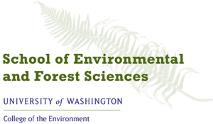
|
Current Issues in Restoration Ecology and Environmental Horticulture |
|
Journal Club (Winter 2015) |
|
Welcome! We meet on Fridays from 4-5 pm in DRC 103. Discussions are facilitated by: · Jon Bakker · Kern Ewing · Jim Fridley · Sarah Reichard
Important Course Logistics and Expectations: · In week 1, sign up for leading a discussion. A group of two or three will be formed to lead each week. · As it approaches your week to lead, a. Consult with at least one faculty to get your paper approved by the Friday prior to your discussion b. Once approved, send your paper to Dr. Bakker by noon Monday for posting on the web c. Send discussion questions to course email list by noon Wednesday. · Sign in each week as you participate in the discussion a. Should you miss a discussion, please email one of the faculty with your own summary and discussion questions of the week prior to your absence to receive credit for participation. b. Alternatively, you may post your summary and questions on the discussion board below.
Course email list: sefs503a_wi15@uw.edu. Please use your UW account! If you do not use your UW account, delivery will be delayed until the email has been approved.
Discussion Board A discussion board for Journal Club is available here: https://catalyst.uw.edu/gopost/board/jbakker/37711/
It can be used in many ways: · Weekly leaders can post questions or comments before class to guide our reading (and the in-class discussion). · People can continue discussions beyond class time. · Folk that have to be in the field or are sick can still participate. · Folk can post relevant articles. |

|
Date |
Leaders |
Topic |
Reading |
Notes |
|
1/9 |
Zac, Dan |
Functional groups |
Student responsibilities and expectations document is here. |
|
|
1/16 |
Chris, Ben |
Novel ecosystems |
|
|
|
1/23 |
Trey, Nicolette, Derek |
Ecological processes |
|
|
|
1/30 |
Allison, Joel, Dan |
Fire and invasives |
|
|
|
2/6 |
Matt, Mark |
Pollinators |
|
|
|
2/13 |
Elyse, Kathleen, Elliott |
Invasion ecology |
|
|
|
2/20 |
Kat, Anna |
Shifting baselines |
|
|
|
2/27 |
Tom, Aaron |
Leafhopper assemblages |
|
|
|
3/6 |
Elaine, Eve |
Volunteers |
Supplemental: Gold et al. 2006. Collaborative ecological restoration. Science 312(5782):1880-1881. |
|
|
3/13 |
Alex, Kelly |
Roadside restoration |
|
|
|
|
|
|
|
|
|
|
|
|
Previous Schedules |
|
|
|
2014-15 |
|
|
|
|
|
2013-14 |
|||
|
|
2012-13 |
|||
|
|
2011-12 |
|||
|
|
2010-11 |
|||
|
|
2009-10 |
|||
|
|
2008-09 |
|||
|
|
|
|
|
Contact: sefs503@uw.edu |
|
Use of this website indicates that you have read and agree to the University of Washington’s Online Privacy Statement and Website Terms and Conditions of Use. |
||||